Freelancing is a popular career choice for many and has the potential to provide a flexible lifestyle. But you need to understand both the pros and cons of freelancing before diving in headfirst.
In this article, I’ll draw on my 5+ years of experience as a freelancer to explore some of the major benefits and drawbacks associated with freelancing. To help you understand if it’s the right career choice for you.
The Pros Of Freelancing
For many people, freelancing is an easy sell. But for those not quite sold on it yet, here are the main advantages of the career path:
Freedom To Choose Your Projects
As a freelancer, you have the freedom to choose your clients and projects. This lets you pursue work that aligns with your interests and skills, leading to greater job satisfaction than many careers might offer.
You also have the flexibility to set your own schedule and work from anywhere. Which can make it easier to balance work and personal life.
Not being tied to a physical location also means you can travel more freely and experience different cultures. The “digital nomad” lifestyle is what attracts many people to the world of freelancing.
Note: You don’t have to work on a beach to enjoy freelancing. Sometimes it’s as simple as being able to work on the couch for a change. Or outside if the weather is nice (being from Scotland, I take every chance I get to do this!).
Higher Earning Potential
Another significant advantage of freelancing is the potential to earn more money than you would in a similar employed position.
As a freelancer, you can set your own rates and negotiate your pay with clients. With the right skills and experience, you can command higher rates and even charge premium prices for specialized services.
This can be especially lucrative if you work in industries such as web development or graphic design, where demand for such services is particularly high.
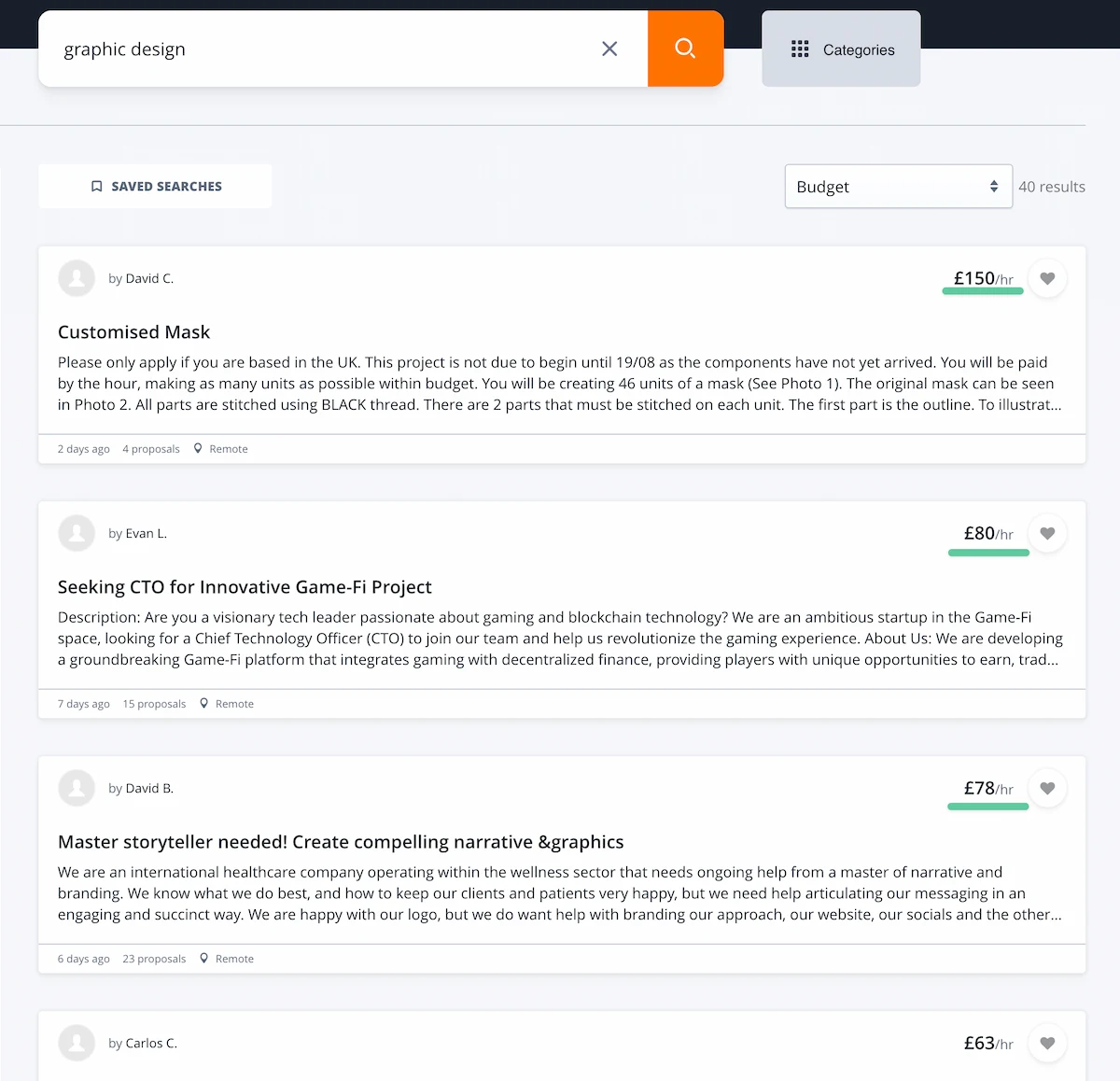
Obviously traditional employment can lead to high salaries. But you have less control over your earnings than with freelancing (at least once you start getting consistent work and can offer a high standard of service). I’ll talk more about the flip side of this later (spoiler: income insecurity is a very real challenge).
Income Diversification
Freelancing also lets you diversify your income streams, which can provide greater financial stability.
Instead of relying on a single employer or source of income, you can take on multiple projects or clients and spread out your earnings.
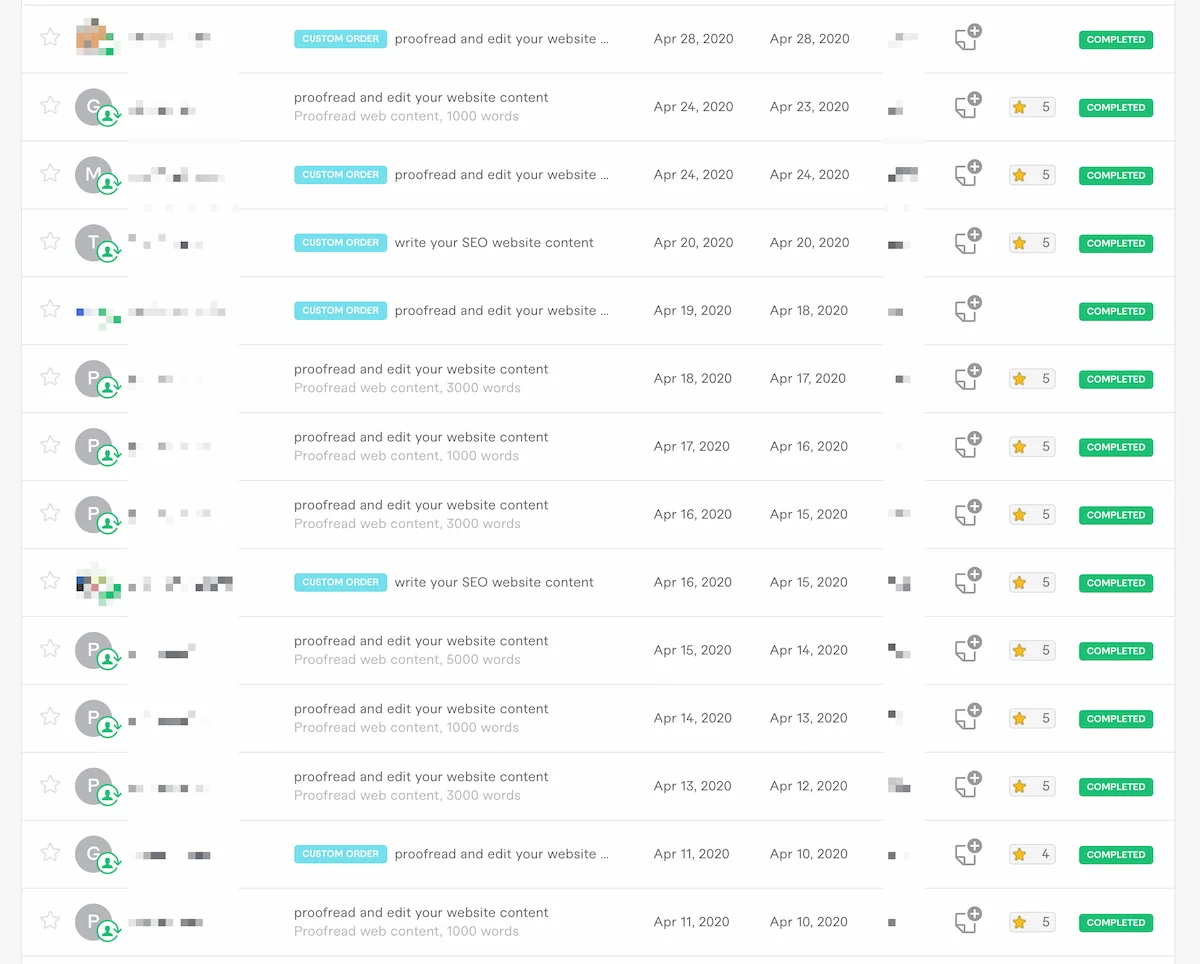
This can ensure that you have a steady income stream, especially during periods where work may be scarce in one particular area. However, there is of course more of a risk of work drying up, which can leave you with no income at all. Again, more on that later.
Ability To Learn New Skills
Being a freelancer also affords you the opportunity to work in various industries and learn new skills. With each project or client, you gain new experience and knowledge that you can apply to future work.
I’ve worked for clients in industries ranging from:
- SEO and digital marketing
- Furniture sales (yep, random)
- Motorsport
- Construction
- Ecommerce
- Tech news
- Real estate
- Health and wellness
- Hospitality
I’ve obviously enjoyed some more than others (motorsport and SEO in particular). But there’s no doubt I’ve been exposed to more industries than a traditional job would allow.
Another advantage of this freedom is that the range of opportunities you can come across also increases. Working with clients in one industry can lead to referrals in others. Increasing your earning potential even further.
Note: You can of course specialize in one industry or niche. This is typically easier if you have specific skills/knowledge, making it a viable route for those making the leap from a traditional job to freelancing in a similar industry.
More Control Over Your Work
Freelance work can also provide greater autonomy and control over your work. Without the structure of a traditional office environment, you can tailor your work environment to best suit your needs.
In other words:
You can choose where, when, and how you work.
This can include working during your most productive hours, taking breaks when you want/need, and pursuing projects that fit your personal values and interests.
Greater Flexibility
Finally, freelancing can allow you to enjoy a better work-life balance than many traditional jobs. You can choose to work fewer hours or more hours depending on your schedule or energy levels.
Obviously this will affect your earning potential. When you’re not working, you’re not making money.
But if you set yourself up with a strong pipeline of clients, you can reach the point where you can afford to take more time off as and when you like.
This flexibility can help you avoid burnout and take care of your mental health. Plus, since you’re not bound to a traditional office environment, you can avoid long commutes and spend more time with your family and friends (or on side projects, or simply more work).
These benefits can significantly enhance your quality of life, making freelancing a compelling career choice for that reason alone.
But what are the downsides of freelancing?
The Cons Of Freelancing
Freelancing is definitely not without its challenges. Let’s take a look at some of the main things to consider before you make the leap to becoming a freelancer:
Lack Of Job Security
One major disadvantage of freelancing is the lack of job security. Unlike traditional employment, freelancers don’t get a guaranteed income or benefits package. So you need to constantly search for new clients and projects to keep your income flowing.
For some, the “thrill of the chase” is all part of the fun. But clearly there are real implications of this that can make it far more difficult for others to sustain. And it can be downright stressful at times.
You need to always be prepared for periods of low demand, where little or no work may be available. This can result in real financial instability.
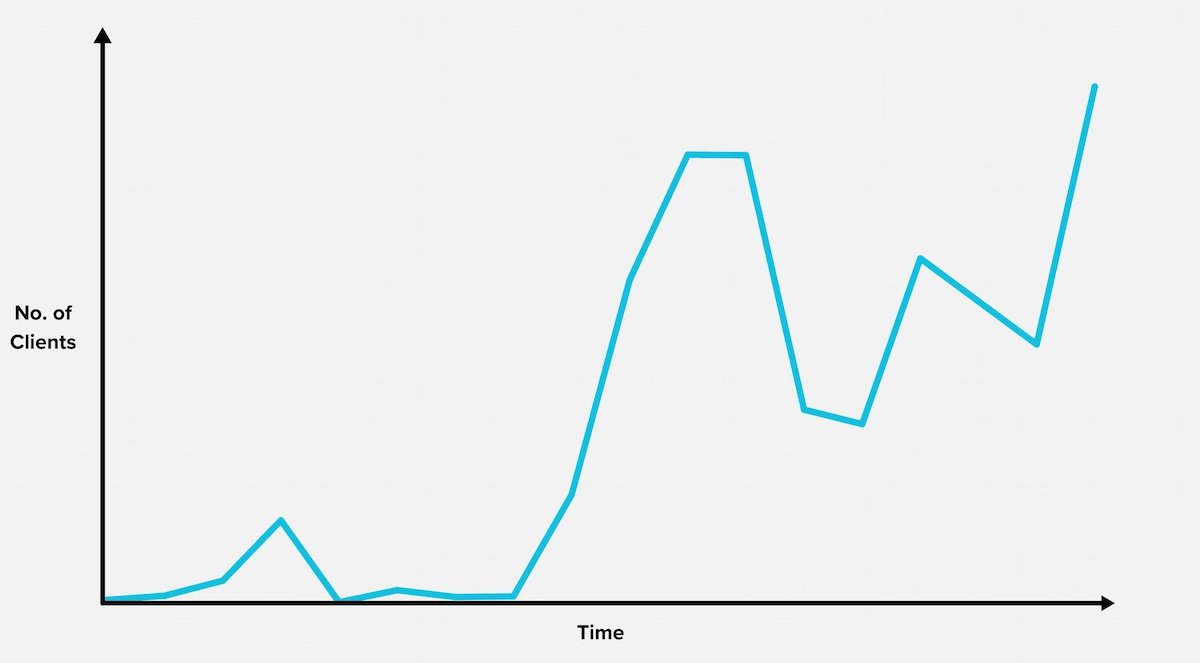
This isn’t an issue for many people in traditional employment. Obviously, you can lose jobs. Things happen. But there’s no doubt that freelancing can be a volatile career.
You Need To Be Self-Motivated
Since you’ll often work from home or other remote locations, you must rely on yourself to stay on task and meet deadlines.
You won’t have a boss or supervisor looking over your shoulder and keeping you on track. A pro in some ways, but a con in others.
This can be particularly challenging for those who struggle with time management or procrastination (I struggled with this a lot in the beginning, and still do sometimes).
Of course, if you are a very driven person, this can make freelancing more attractive!
You Need To Run It Like A Business
Another downside of freelancing is the burden of managing every aspect of your business. You don’t just need to manage the work you perform for clients. But you also need to handle administrative tasks like accounting and invoicing clients. Not to mention marketing yourself.
This can take a considerable amount of time and effort away from the actual work that you specialize in.
You need to stay on top of your taxes too. Tracking your income and business expenses throughout the year.
Note: This often sounds more daunting than it really is. Not only are there lots of accounting tools out there to streamline things, but even filling out a tax return is often fairly straightforward.
It Involves Constant Learning
Another con of freelancing is the need to constantly update your skills and knowledge, and all at your own expense. I personally see the constant learning as a pro, but there’s no doubt that it can get time consuming (and sometimes expensive).
In many industries, the technology and best practices can change rapidly, and you need to stay on top of these changes to remain competitive.
Note: As a freelance SEO consultant, this is especially important for me. Google is constantly updating its algorithms and best practices seem to change every day. But that’s something I enjoy, so it’s not always a disadvantage of freelancing!
And you don’t need to go to university or take expensive online courses. There are countless free ways to level up your skills. From blogs to YouTube videos, and even following industry experts on social media.
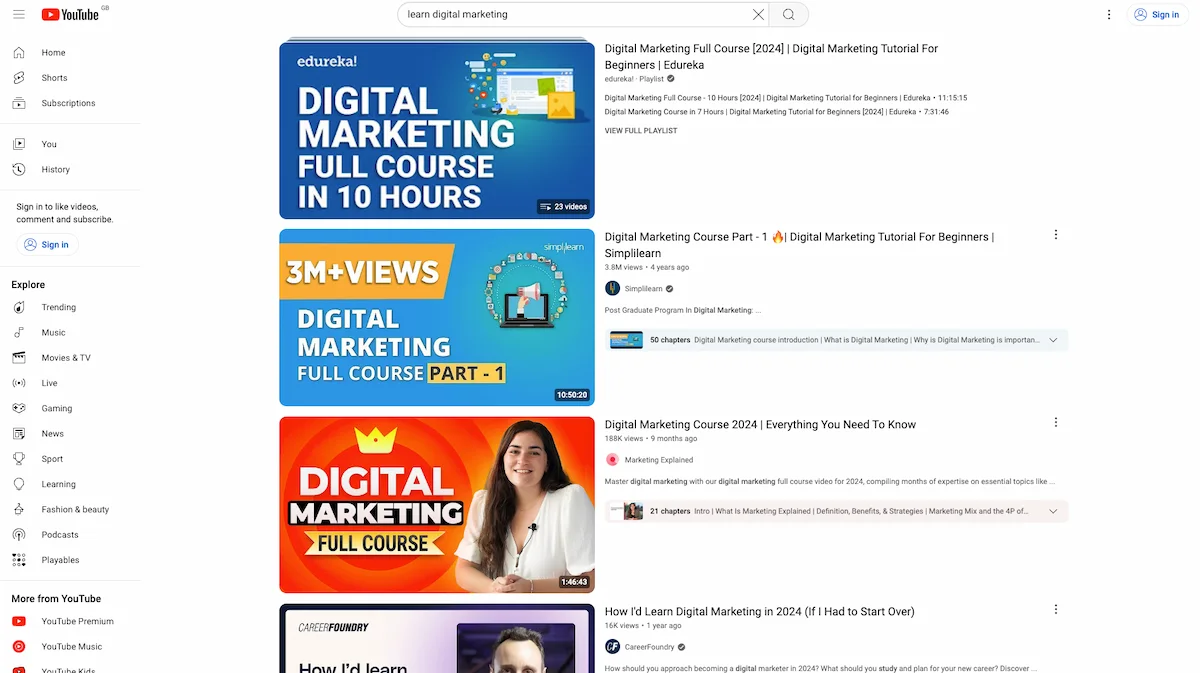
You’re On Your Own
When you work in an office environment, connections are often literally at arm’s reach. This typically isn’t the case if you’re working in a home office or your bedroom.
Not having coworkers also means freelancers don’t have access to company-sponsored training or development events, team-building exercises, or other group activities that provide value both professionally and at a personal level.
However, like the self-motivation requirement, this can make freelancing more attractive for some people. While I can work well in a team, I also enjoy going solo, which made freelancing a very attractive choice for me.
Plus, you are still dealing with clients. So it’s not like you’ll never communicate with other people. And there are communities out there you can join too. Like the Superpath Slack community, or freelancing Facebook groups.
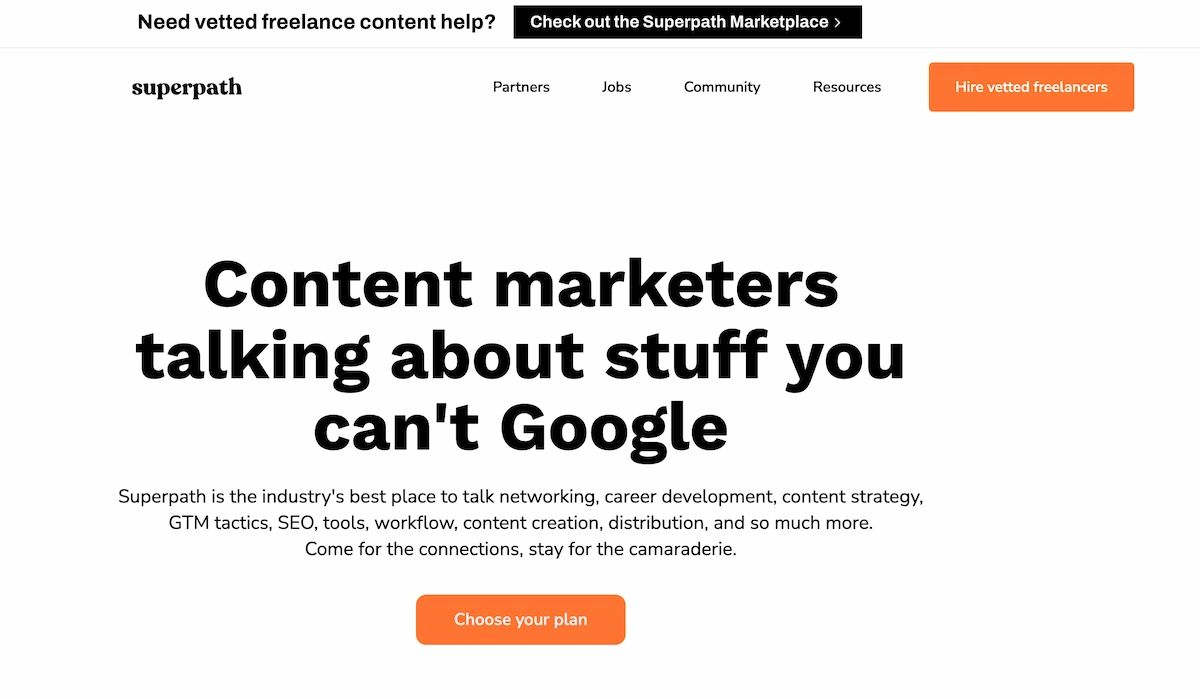
No Guaranteed Payment
Another downside to freelancing lies in the fact that clients are never guaranteed to pay in full or on time.
(I’m still waiting on a £150 payment from one client from 4+ months ago!)
Unlike a traditional work environment where payment is typically regular, freelancers are at the mercy of their clients’ payment schedules.
This can be particularly challenging when dealing with international clients, who may be subject to different banking regulations and payment processing timelines.
Plus, since freelancers don’t have the backing of a larger organization, you need to deal with these issues on your own. Which can be challenging and very stressful.
This can make freelance marketplaces a good choice for beginners, as they usually handle payments and disputes for you. But they have their own drawbacks.
Further reading: The Ultimate Freelance Marketplace List
It Can Be Exhausting
Finally, freelancing can be mentally draining and emotionally exhausting. Unlike traditional employment where you can leave work at the office, freelancers may have trouble disconnecting from work if their office is at home, finding it difficult to separate their work and personal life.
This is something I’ve personally struggled with. It’s easy to “just” check your emails on your phone at dinner. Or to flick to a Slack channel while browsing something else online at the weekend and get sucked back into work mode.
It can be tough to balance time for yourself, your social life, and family life with freelance work. Working excessive hours, dealing with difficult clients, or juggling multiple projects can result in burnout and even physical problems that then interfere with your personal life.
Of course, this is true of many traditional jobs as well. But it’s easy to forget to make time for balance when there’s no office at which to leave your work at the end of the day.
How To Know If Freelancing Is Right For You
With all the pros and cons of freelancing in mind, how do you know if it’s really for you?
Before making the leap into self-employment, ask yourself these questions:
Are You Motivated?
First and foremost, you need to be highly organized and motivated. You need to be able to manage your own time, set and meet deadlines, and juggle multiple projects at one time.
Do You Have Business Savvy?
You also need a certain level of business acumen to stay on top of your accounting and taxes. And to market your services in a way that actually gets clients.
Further reading: How To Get Freelance Clients
Can You Take Your Development Into Your Own Hands?
Finally, you also must be willing to invest in your professional development so that you can remain competitive in the market.
As I said above, you don’t necessarily need to enroll in courses. But you do need to put some time into continuous learning if you want to remain competitive.
More Questions To Ask Yourself
Other questions to ask yourself to determine if freelancing is right for you include:
- Do I have the discipline and motivation to manage my own time?
- Am I familiar with tax regulations and financial planning as they relate to my industry?
- Will I be able to handle the uncertainty of not having a steady income?
- Can I stay focused on my work while working from home or other remote locations?
- Am I willing to put in extra effort when needed, such as taking on additional projects or deadlines that may come up unexpectedly?
Are The Pros Worth The Cons?
For me, the pros of freelancing were worth the potential disadvantages. I still encounter each of them all the time, but the freedom and potential of the career path really make it worth it for me.
Whether it’s worth it for you is going to depend on a lot of factors. But hopefully this guide has helped you understand more about the pros and cons.
If you decide it’s the career path for you, there are some freelancing myths to be aware of before you jump in.
Freelance Ready is reader-supported. That means some links on this website are affiliate links. If you sign up or make a purchase through these links, we may earn a commission.

